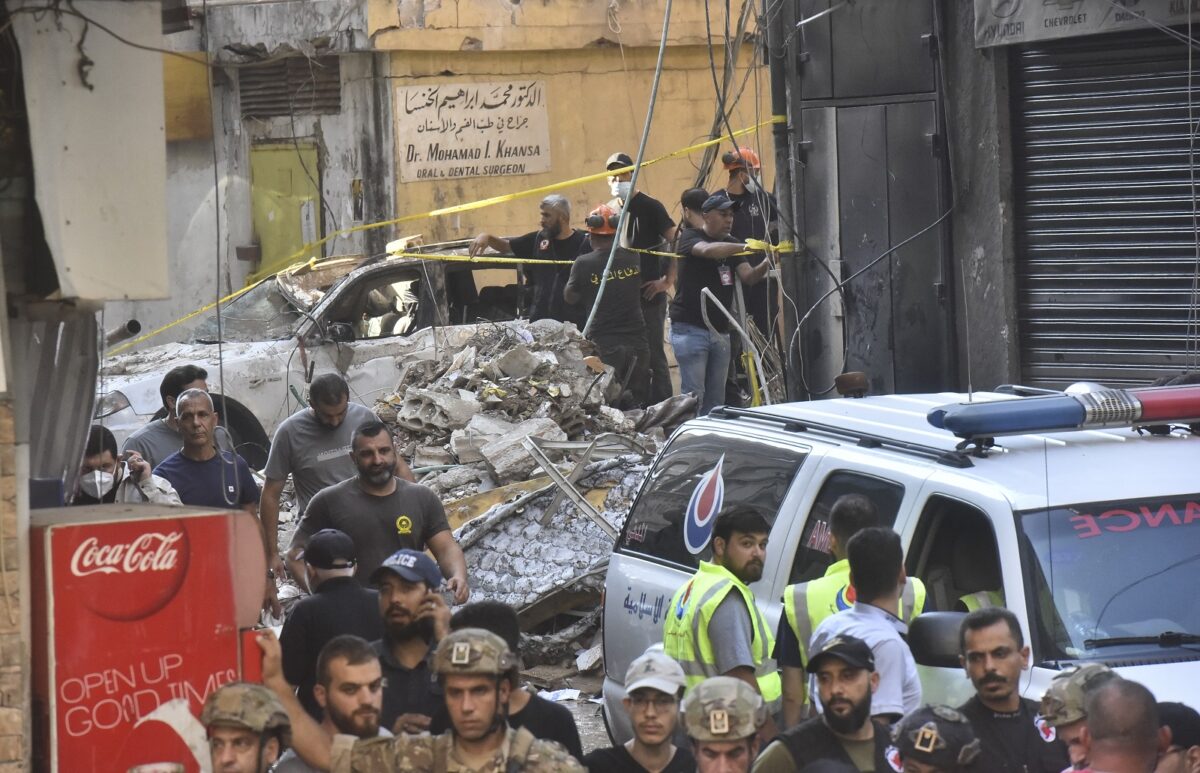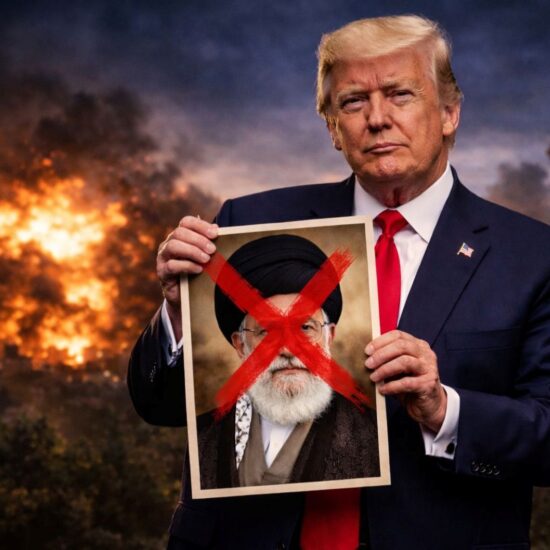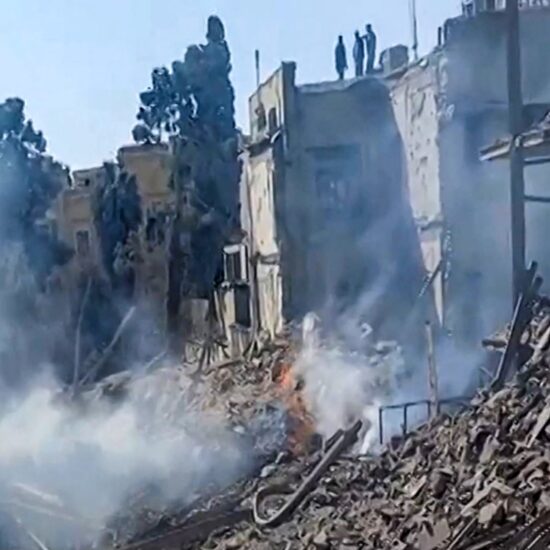
In the wake of recent Israeli airstrikes targeting civilian buildings in Beirut’s southern suburbs, some Lebanese have voiced criticism against Hezbollah for using these areas for their meetings and military operations
Hezbollah has lost much of its prestige this week with an unprecedented psychological toll after the Israeli military blew up thousands of pagers and walkie-talkies across Lebanon, killing nearly 40 people and injuring more than 3,000, including civilians with a vast majority of Hezbollah members. Pressuring the military group even further, the next day after the pagers attack, Israel once again struck the densely populated southern suburbs, destroying an entire building and killing at least 14 people and injuring dozens.
Their target in the attacks was Ibrahim Aqil, head of Hezbollah’s elite Radwan unit. At least 10 party commanders were killed alongside Ibrahim as they were in the middle of a meeting in a civilian building in Jamous Street, Dahieh.
For political analysts, the party received the hardest blow in history. Thousands of men were wounded, communication systems were disabled and a significant psychological toll haunted the group and civilians in the country.
Dr Jad Al Hakim, who is a lecturer at Balamand University and an analyst in political science and Middle East conflict studies explained to NOW Lebanon, “Hezbollah’s operational capabilities appear to be severely weakened. Its command chain is seriously impaired as its paranoia is stronger than ever since they have to question how its members communicate safely now, how will they meet without risking being targeted by another strike, and how can they prevent spies everywhere.”
All of these aspects make Hezbollah’s power position questionable as they have been taking hits since October 8, 2023, which have greatly intensified now.
The fate of civilians
Israel, which has destroyed Gaza, and killed tens of thousands of Palestinians now promises the same fate for Lebanon.
The recent strikes on the southern suburbs of Beirut, a largely civilian area, have intensified concerns that Israel may expand its military operations to target civilian buildings throughout Lebanon.
Targeting these areas not only endangers countless lives but also risks further destabilizing Lebanon’s already fragile socio-political landscape, worsening the humanitarian crisis and undermining efforts to preserve regional stability.
Amidst these fears, civilians are left grappling with uncertainty and the looming possibility of further destruction.
Speaking out
In the wake of recent Israeli airstrikes targeting civilian buildings in Beirut’s southern suburbs, some Lebanese have voiced criticism against Hezbollah for using these areas for their meetings and military operations.
“Hezbollah’s presence in densely populated neighborhoods puts civilians at grave risk, as it draws Israeli retaliation to areas where families live, work, and go about their daily lives, according to Dr Jad.
“By operating within civilian infrastructure, Hezbollah is seen by many Lebanese as endangering innocent civilian lives where residential zones are potentially turned into military targets, as happened on Friday’s attack with the killing target being a prominent leader in the group,” he added.
While Hezbollah frames its military operations as defensive, these tactics have drawn significant criticism, both for putting Lebanese civilians at risk and for violating international humanitarian law, which prohibits the use of civilian infrastructure for military purposes.
The presence of Hezbollah operations in civilian areas can also create a climate of fear and uncertainty.
Civilians can experience significant psychological stress, knowing that their homes, schools or public buildings may be targeted, although many are reluctant to admit this as they do not want to receive shame from their pro-Hezbollah communities.
Violation of international humanitarian law?
According to Dana Safi, an international law graduate from the University of London, Hezbollah’s use of civilian buildings for military purposes is seen as a violation of international law because it contravenes key principles of the Geneva Conventions, which govern the conduct of armed conflict.
Under these laws, the principle of distinction requires parties to a conflict to separate military targets from civilian objects. By using civilian buildings. such as homes, schools, and hospitals for military activities like storing weapons, holding meetings, or launching attacks, Hezbollah blurs the line between militants and civilians, making residential areas vulnerable to military retaliation.
It further violates the principle of proportionality, which forbids attacks where the harm to civilians would be excessive compared to the military advantage achieved.
While Hezbollah positions itself as a ‘defender’ of Lebanon, especially in conflicts with Israel, their use of civilian infrastructure for military purposes has the potential to undermine local support. Civilians caught in the crossfire may become critical of Hezbollah for using tactics that expose them to danger. This, in turn, could affect the group’s broader social and political standing in Lebanon.
In the recent intensification of attacks on the south, Israel accused Hezbollah of storing weapons in civilian homes, so as a result, they blamed the Iran-backed group for turning southern Lebanon into a battlefield.
Missiles struck southern Lebanon early Monday morning, breaking the quiet and reportedly causing the deaths of over 550 people. Israel stated that the strikes were aimed at Hezbollah weapons concealed within residential buildings.
The attacks on Monday, September 23, marked the beginning of a new offensive against Hezbollah, with the Israeli military warning civilians to evacuate any locations where Hezbollah weapons or fighters were present. The missiles that have struck Southern Lebanon and the Beqaa region have displaced thousands of people and many are sheltering in schools and educational institutions in different villages over the country.
The renewed exchange of fire occurred as Israel issued warnings to people in Lebanon through automated phone calls, text messages, and even reportedly hacking into Lebanese radio stations.
“The messages urged civilians to evacuate buildings used by Hezbollah, if this is true, then this is a big threat to the safety of civilian lives and the country as a whole,” said Dana.
Rodayna Raydan is a Lebanese-British journalist. You can follow her on Twitter @Rodayna_462
The views in this story reflect those of the author alone and do not necessarily reflect the beliefs of NOW.








